
Houma: The Heartbeat of Bayou Country
Houma, located in the mesmerizing state of Louisiana, is a hidden gem that offers tourists a unique blend of history, culture, and natural beauty. Known for its rich Cajun heritage and vibrant bayou landscapes, Houma is a destination that promises an unforgettable experience for each visitor. Start your adventure with a swamp tour to explore the lush wetlands and encounter wildlife like alligators, birds, and turtles. The bayous and swamps are not just scenic; they are brimming with stories and legends passed down through generations. For a deeper dive into local culture, visit the Bayou Terrebonne Waterlife Museum and learn about the area's fishing and maritime traditions. No trip to Houma is complete without indulging in the local cuisine. Savor authentic Cajun dishes like gumbo, jambalaya, and crawfish etouffee at one of the town's many charming restaurants. The vibrant music scene, featuring lively Zydeco and Cajun bands, provides the perfect soundtrack to your culinary journey. Houma's historic downtown is a treasure trove of architectural beauty and unique shops. Stroll down Main Street to find antique stores, local art galleries, and boutique shops. Don't miss the grand Southdown Plantation House, a beautifully preserved antebellum home offering guided tours that delve into the area's history. For those looking to connect with nature, Houma offers numerous outdoor activities. Fishing, bird-watching, and boating are popular pastimes. The Mandalay National Wildlife Refuge is ideal for nature walks and spotting native wildlife in their natural habitat. With its warm hospitality and unique cultural experiences, Houma is a must-visit destination in Louisiana.
Local tips in Houma
- Book a swamp tour in advance, especially during peak tourist seasons.
- Visit the local farmers' market for fresh produce and handmade crafts.
- Wear comfortable shoes for walking tours and exploring the bayous.
- Try the local seafood dishes; Houma is known for its fresh and delicious catch.
- Check the local events calendar as Houma hosts many festivals celebrating Cajun culture and music.
Houma: The Heartbeat of Bayou Country
Houma, located in the mesmerizing state of Louisiana, is a hidden gem that offers tourists a unique blend of history, culture, and natural beauty. Known for its rich Cajun heritage and vibrant bayou landscapes, Houma is a destination that promises an unforgettable experience for each visitor. Start your adventure with a swamp tour to explore the lush wetlands and encounter wildlife like alligators, birds, and turtles. The bayous and swamps are not just scenic; they are brimming with stories and legends passed down through generations. For a deeper dive into local culture, visit the Bayou Terrebonne Waterlife Museum and learn about the area's fishing and maritime traditions. No trip to Houma is complete without indulging in the local cuisine. Savor authentic Cajun dishes like gumbo, jambalaya, and crawfish etouffee at one of the town's many charming restaurants. The vibrant music scene, featuring lively Zydeco and Cajun bands, provides the perfect soundtrack to your culinary journey. Houma's historic downtown is a treasure trove of architectural beauty and unique shops. Stroll down Main Street to find antique stores, local art galleries, and boutique shops. Don't miss the grand Southdown Plantation House, a beautifully preserved antebellum home offering guided tours that delve into the area's history. For those looking to connect with nature, Houma offers numerous outdoor activities. Fishing, bird-watching, and boating are popular pastimes. The Mandalay National Wildlife Refuge is ideal for nature walks and spotting native wildlife in their natural habitat. With its warm hospitality and unique cultural experiences, Houma is a must-visit destination in Louisiana.
When is the best time to go to Houma?
Iconic landmarks you can’t miss
Big Al's Seafood Restaurant
Experience the rich flavors of Louisiana at Big Al's Seafood Restaurant, where fresh seafood and local hospitality come together for an unforgettable dining experience.
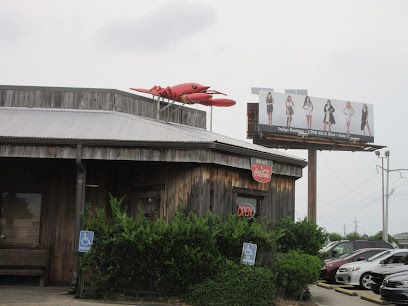
Big Mike's BBQ Smokehouse
Experience the authentic taste of Louisiana BBQ at Big Mike's Smokehouse, where flavorful meats and southern hospitality come together.
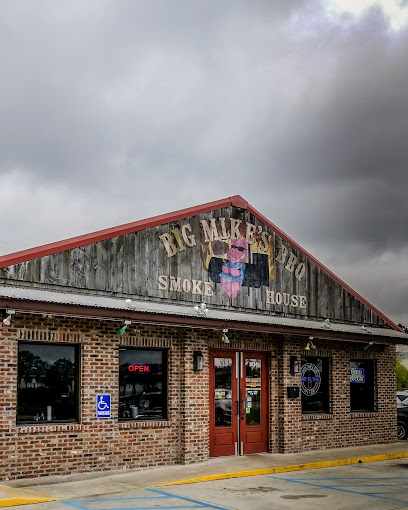
Spigots Brew Pub
Explore the best of craft brews and local flavors at Spigots Brew Pub in Houma, Louisiana – a perfect stop for every traveler.
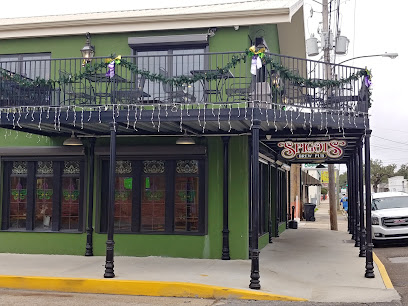
Off The Hook
Experience the essence of Louisiana at Off The Hook, where fresh seafood meets Cajun flair in a delightful ambiance.
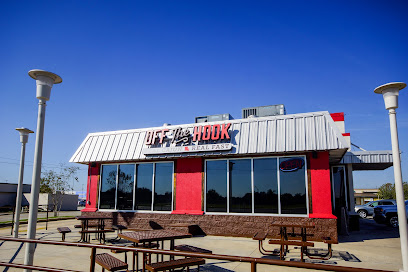
La Carreta
Experience authentic Mexican cuisine at La Carreta in Houma, LA – a budget-friendly gem for food lovers and adventurous travelers.
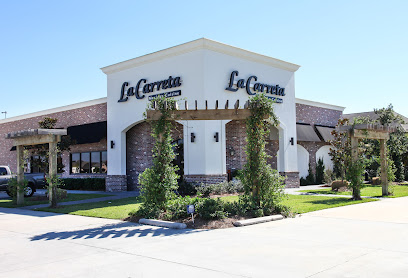
Courtyard Houma
Experience southern hospitality and modern comfort at Courtyard Houma, the perfect base for exploring Louisiana's vibrant culture and scenic landscapes.

Cristiano Ristorante
Experience authentic Italian cuisine in Houma, Louisiana, at Cristiano Ristorante, where every meal is a delightful culinary journey.
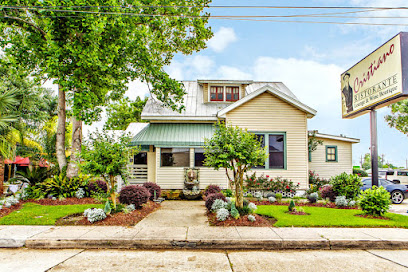
Da Swamp
Experience thrilling rides and unforgettable events at Da Swamp, Houma's ultimate amusement center for family fun and excitement.
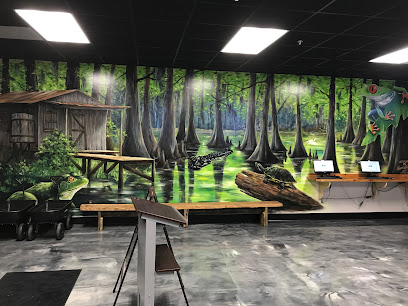
Barry P. Bonvillain Civic Center
Discover the Barry P. Bonvillain Civic Center, where Houma's vibrant culture comes to life through events, concerts, and conferences.
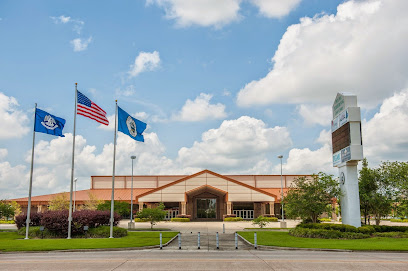
Abear's Cafe
Experience authentic Cajun cuisine at Abear's Cafe in Houma, Louisiana, where every meal tells a story of local culture and culinary tradition.
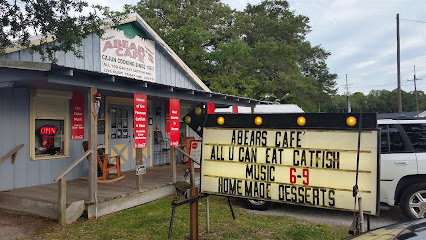
1921 Seafood And Oyster Bar
Savor the freshest seafood and local delicacies at 1921 Seafood And Oyster Bar in Houma, Louisiana, where every meal tells a story.
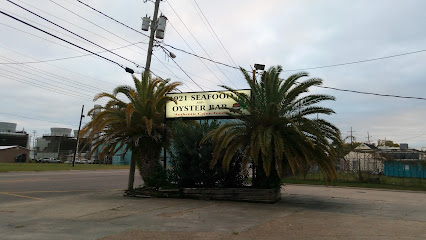
Downtown Jeaux
Experience the cozy ambiance and exceptional brews at Downtown Jeaux, the heart of coffee culture in Houma, Louisiana.
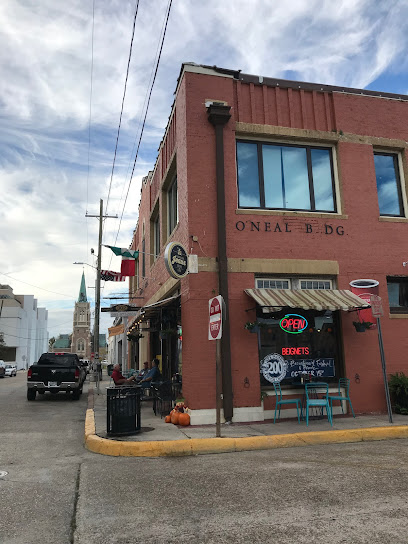
Bayou Express Seafood
Discover the best of Louisiana seafood at Bayou Express Seafood, where fresh flavors and Cajun traditions come together in a delightful dining experience.
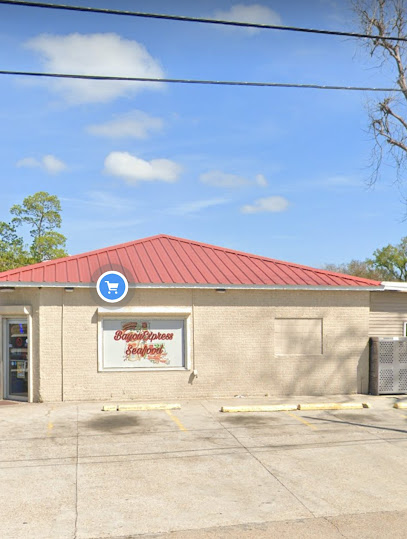
PJ's Coffee
Experience the rich flavors of PJ's Coffee in Houma, where exceptional brews meet delightful pastries in a cozy atmosphere.
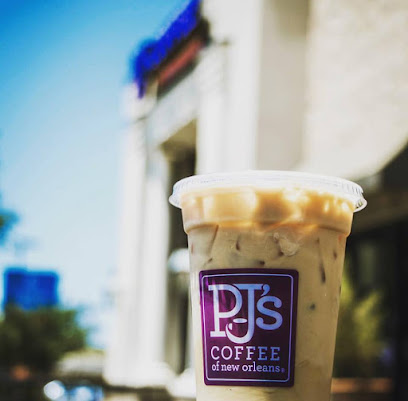
531 Liberty Cafe
Discover the flavors of Louisiana at 531 Liberty Cafe in Houma - a charming restaurant and bar offering local cuisine in a cozy setting.
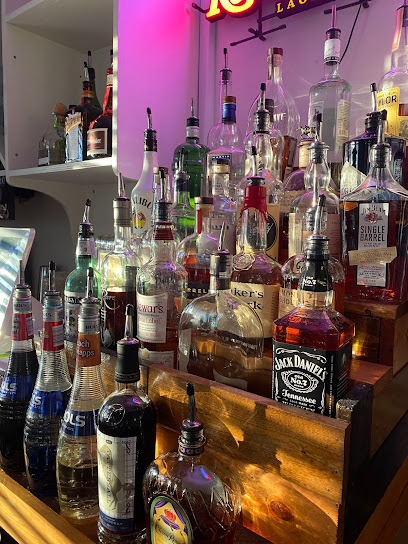
Unmissable attractions to see
Oak Alley Plantation
Experience the beauty and history of Oak Alley Plantation, where majestic oaks and antebellum elegance tell a timeless story of Louisiana's past.
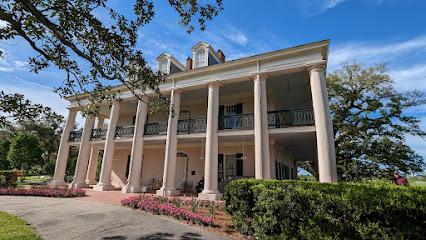
Whitney Plantation
Experience the profound history of Whitney Plantation, dedicated to the stories of enslaved people and their enduring legacy in Louisiana.
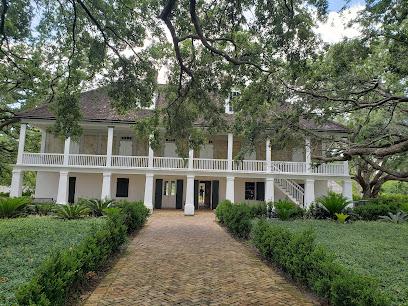
St. Joseph Plantation Felicity Plantation
Explore St. Joseph Plantation, a historical landmark that embodies the rich history and cultural heritage of Louisiana's antebellum era.
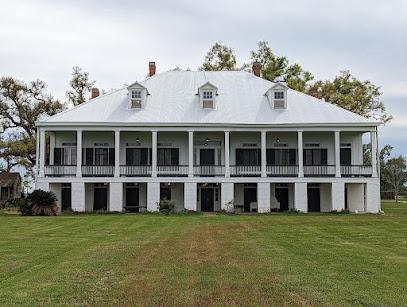
Southdown Plantation & Museum
Discover the captivating history of Louisiana's plantation life at Southdown Plantation & Museum, a cultural gem in Houma, Louisiana.
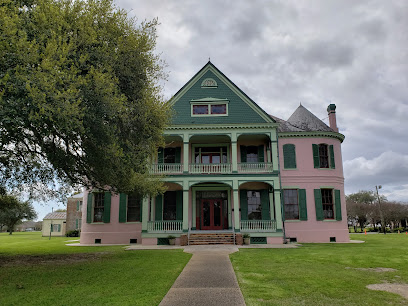
Regional Military Museum
Discover the rich military history of Louisiana at the Regional Military Museum in Houma, showcasing artifacts and stories that honor local heroes.
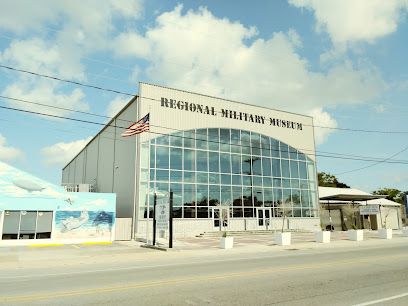
Mandalay Nature Trail
Discover the tranquil beauty of Mandalay Nature Trail, a premier hiking destination in Houma, Louisiana, perfect for nature lovers and outdoor enthusiasts.
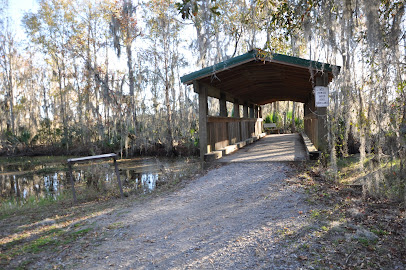
Bayou Terrebonne Waterlife Museum
Discover the natural beauty and cultural heritage of Louisiana at the Bayou Terrebonne Waterlife Museum – a must-visit destination for eco-enthusiasts.
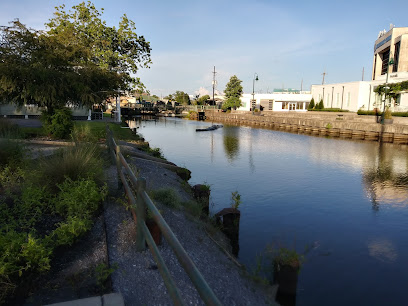
Jim Bowie Park
Explore the serene landscapes and family-friendly amenities of Jim Bowie Park in Houma, Louisiana.
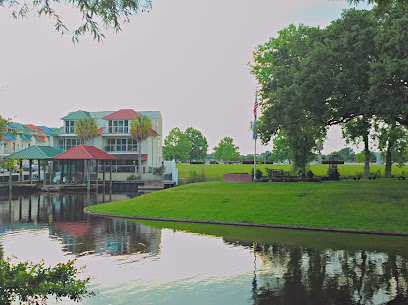
Mandalay National Wildlife Refuge
Immerse yourself in Louisiana's natural beauty at Mandalay National Wildlife Refuge, a serene escape for wildlife enthusiasts and nature lovers.
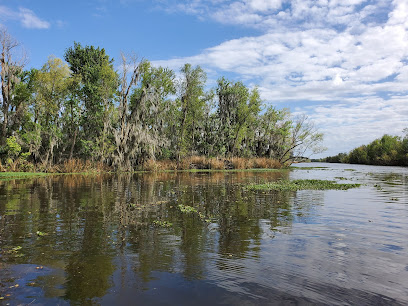
Annie Miller's Swamp Tours & Charters
Experience the beauty of Louisiana's swamps with Annie Miller's Swamp Tours & Charters, where nature and adventure await every visitor.
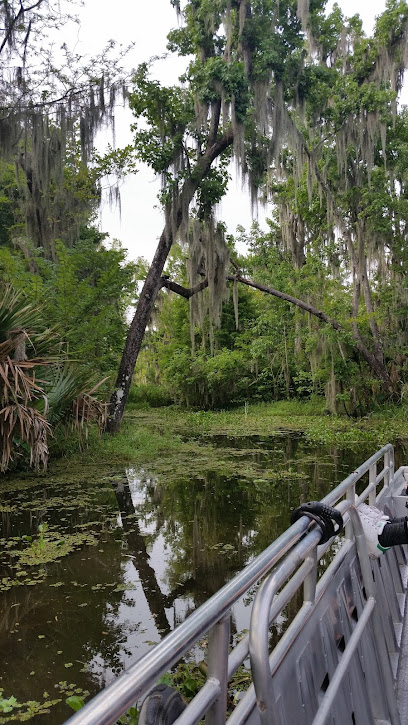
Ardoyne Plantation
Discover the rich history and stunning architecture of Ardoyne Plantation, a captivating tourist attraction in Louisiana's heart.
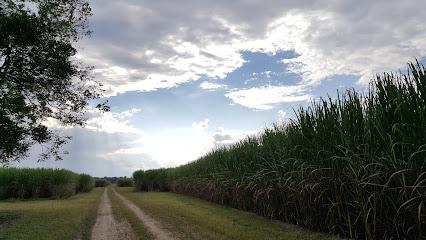
Finding Our Roots African American Museum
Explore the rich tapestry of African American history and culture at the Finding Our Roots African American Museum in Houma, Louisiana.
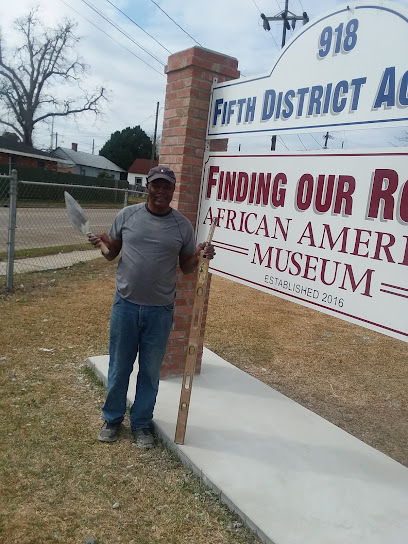
Terrebonne Folklife Culture Center
Explore Louisiana's vibrant cultural heritage at the Terrebonne Folklife Culture Center, where traditions come alive through music, crafts, and community events.
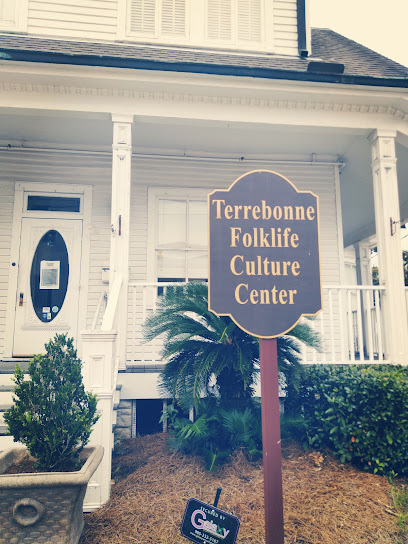
Essential places to dine
Outback Steakhouse
Savor the authentic taste of Australia with juicy steaks and vibrant flavors at Outback Steakhouse in Houma.
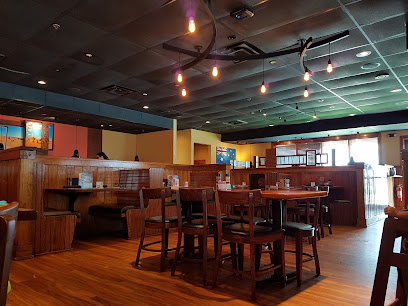
Big Al's Seafood Restaurant
Experience the best of Louisiana seafood at Big Al's Seafood Restaurant in Houma - where freshness meets tradition!
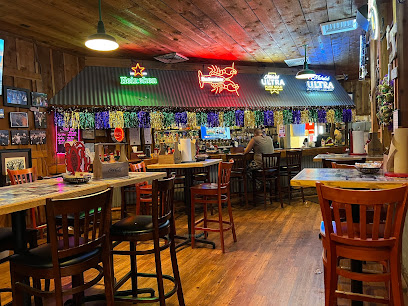
Big Mike's BBQ Smokehouse
Experience authentic Southern barbecue at Big Mike's BBQ Smokehouse in Houma, where every bite tells a story of flavor and tradition.
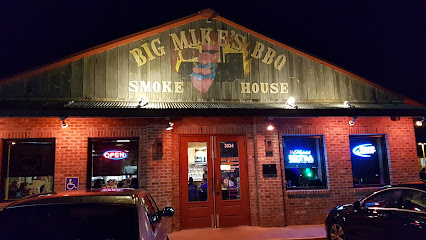
Olive Garden Italian Restaurant
Discover authentic Italian cuisine at Olive Garden in Houma—perfect for families seeking delicious meals in a welcoming atmosphere.
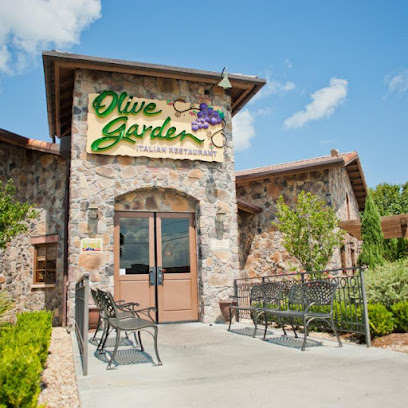
The Shack
Experience authentic Louisiana seafood cuisine at The Shack in Houma - where flavor meets Southern hospitality.
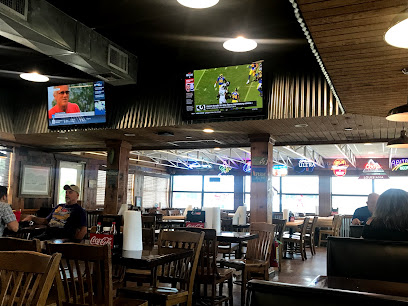
Copeland's of New Orleans
Discover authentic Cajun flavors and Southern charm at Copeland's of New Orleans in Houma.
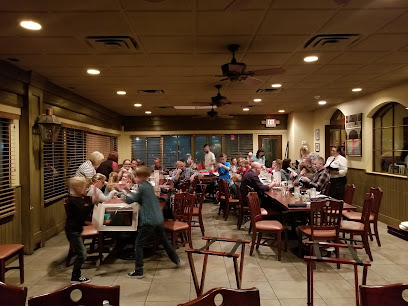
El Paso Mexican Grill
Discover authentic flavors at El Paso Mexican Grill in Houma—where every dish tells a story of Mexico's rich culinary heritage.
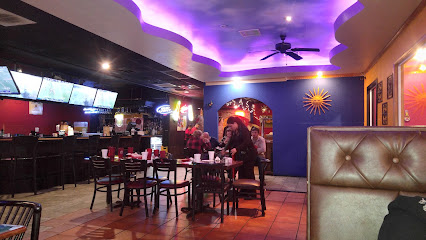
Applebee's Grill + Bar
Experience classic American dining at Applebee's Grill + Bar in Houma – where comfort food meets casual elegance.
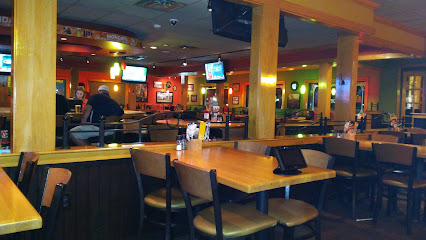
Spigots Brew Pub
Experience the best of local brews and flavors at Spigots Brew Pub in Houma, Louisiana – where great food meets craft beer.
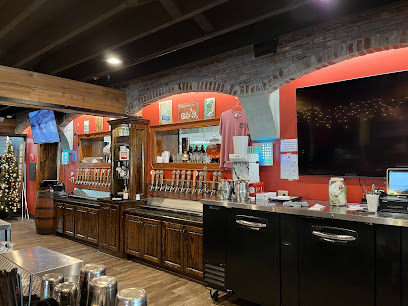
Off The Hook
Discover the flavors of Louisiana at Off The Hook - where fresh seafood meets authentic Cajun cuisine in a welcoming atmosphere.
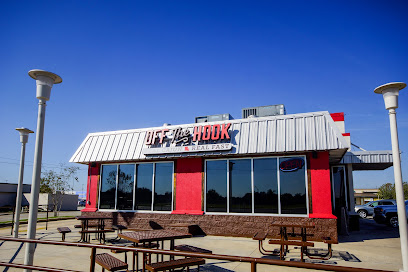
La Carreta
Experience authentic Mexican flavors at La Carreta in Houma – where every dish tells a story and every meal is a celebration.
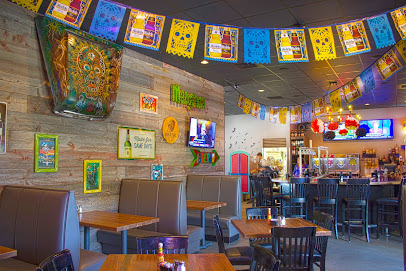
Cristiano Ristorante
Indulge in authentic Italian cuisine at Cristiano Ristorante in Houma - where every dish tells a story of flavor and tradition.
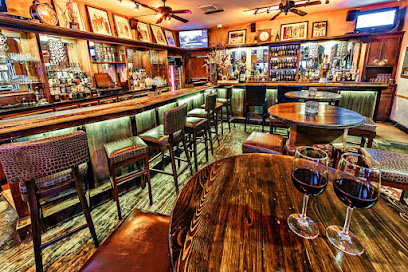
Mr. Po-Boy
Experience authentic Louisiana flavors at Mr. Po-Boy in Houma - home of delicious po' boys and classic fast food.
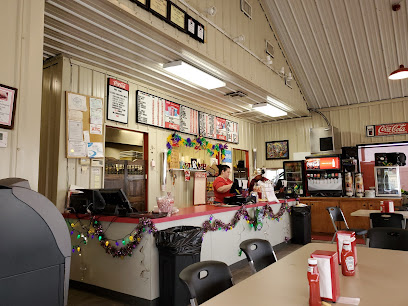
The Pit Stop
Experience authentic Louisiana flavors at The Pit Stop in Houma – where delicious meets affordable in a warm and inviting atmosphere.
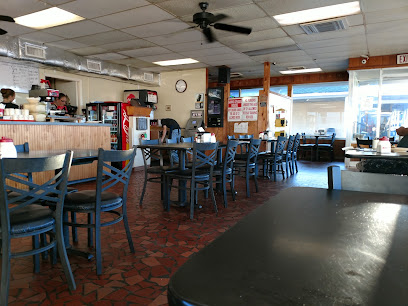
Griffin's Poboy and Grille
Experience authentic Louisiana cuisine at Griffin's Poboy and Grille - where every bite tells a story of flavor and tradition.
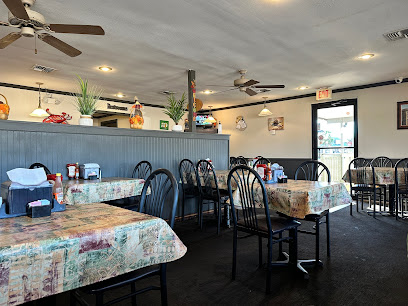
Markets, malls and hidden boutiques
Southland Mall
Experience the best shopping and dining at Southland Mall, Houma's vibrant retail destination with something for everyone.
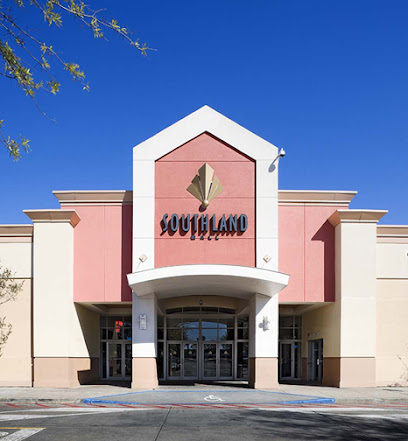
2nd & Charles
Explore a treasure trove of collectibles, books, and pop culture at 2nd & Charles in Houma, Louisiana.
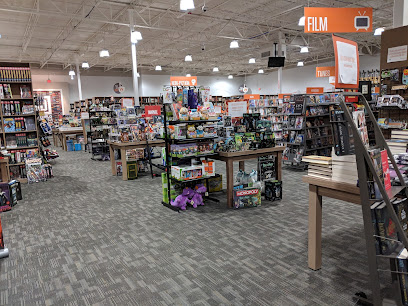
Marshalls
Shop at Marshalls in Houma, LA, for unbeatable savings on stylish clothing for the whole family and unique home goods.
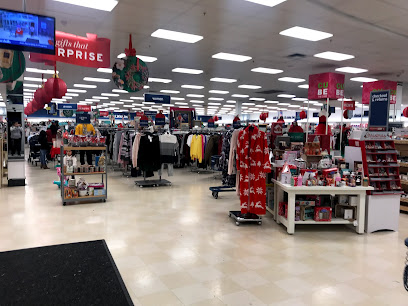
Dirt Cheap
Discover unbeatable deals and hidden treasures at Dirt Cheap, Houma's ultimate discount store for savvy shoppers!
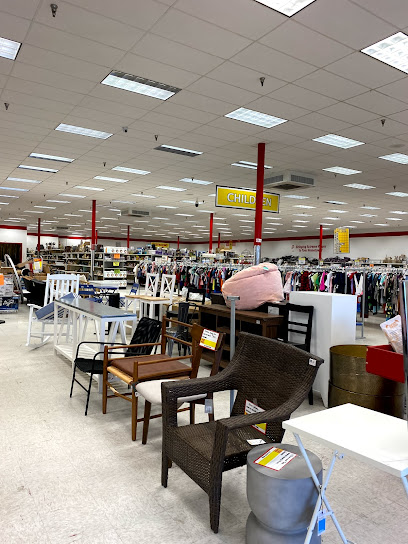
Target
Experience the convenience of Target in Houma, where shopping for clothing, electronics, and home goods meets quality and affordability.

Five Below
Explore Five Below in Houma for affordable gifts, trendy toys, and unique finds; all priced at five dollars or less.
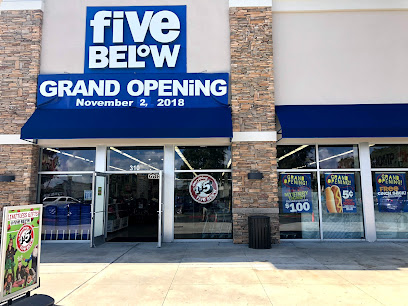
Paisley Park Resale
Explore stylish and affordable baby clothing at Paisley Park Resale in Houma, Louisiana, a unique shopping destination for parents and tourists alike.
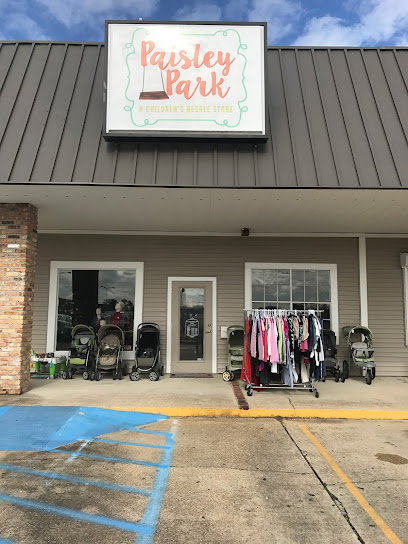
Heritage
Discover Heritage, the ultimate shoe store in Houma, Louisiana, offering an extensive collection for every style and occasion in a welcoming environment.
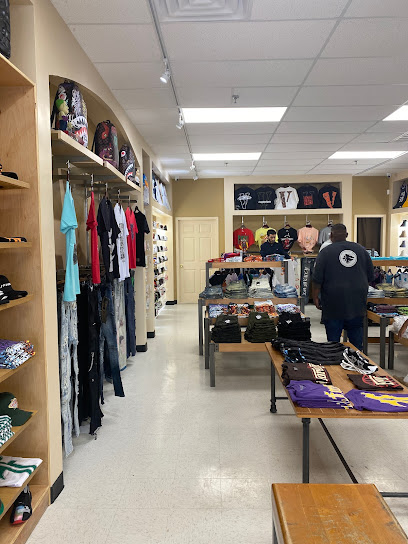
rue21
Explore trendy and affordable fashion at rue21 in Houma, Louisiana, offering stylish clothing and accessories for every occasion.

Knot Me Adult Boutique
Explore your desires at Knot Me Adult Boutique, Houma's premier destination for exquisite lingerie and adult novelties in a welcoming atmosphere.
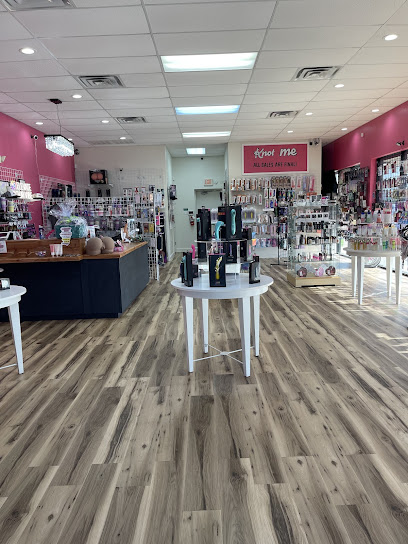
Houma Mardi Gras Beads Factory
Discover the essence of Mardi Gras at the Houma Mardi Gras Beads Factory, your go-to destination for vibrant beads and festive supplies in Louisiana.
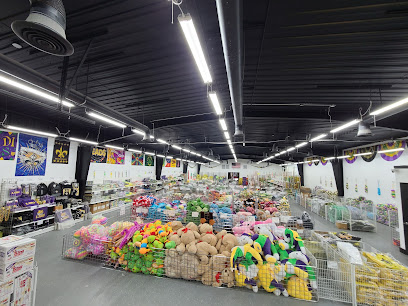
Outside & In
Uncover the charm of Louisiana at Outside & In, where unique gifts and local artistry await your discovery.

St Vincent de Paul Society Store
Explore the St Vincent de Paul Society Store in Houma for unique thrift finds and support local charities with every purchase.
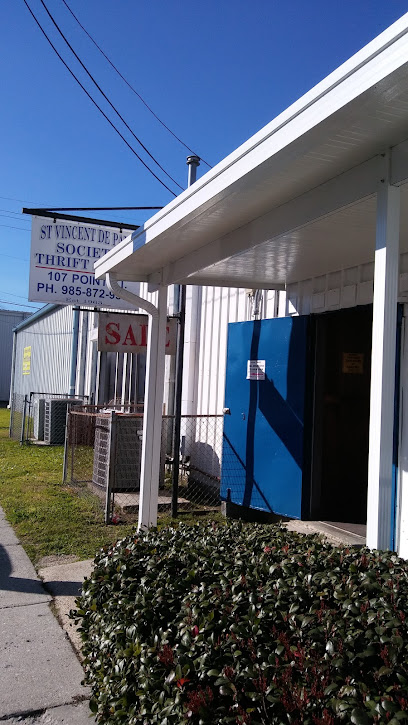
Cedar Chest Boutique
Explore Cedar Chest Boutique in Houma, LA for unique vintage finds and affordable treasures that support the local community.
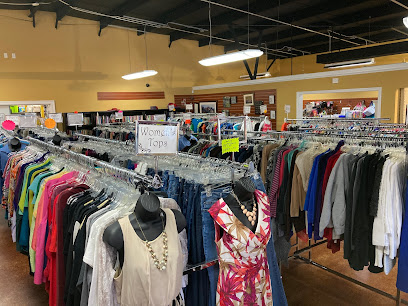
Shop-N-Bag
Discover the convenience of Shop-N-Bag in Houma, Louisiana - your go-to spot for snacks, meals, and fuel on your adventures.
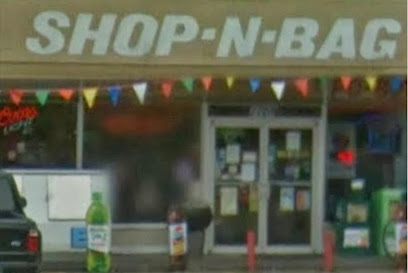
Essential bars & hidden hideouts
Spigots Brew Pub
Experience the best of local craft beer and delicious cuisine at Spigots Brew Pub in Houma, Louisiana, a hub of culture and flavor.
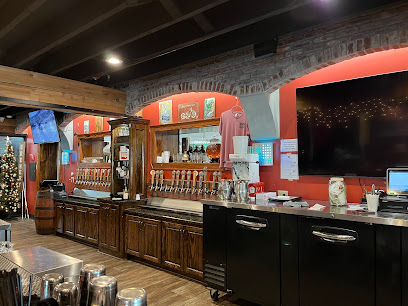
On The Canal Bar
Experience the vibrant nightlife of Houma at On The Canal Bar, your go-to destination for drinks, live music, and local charm.
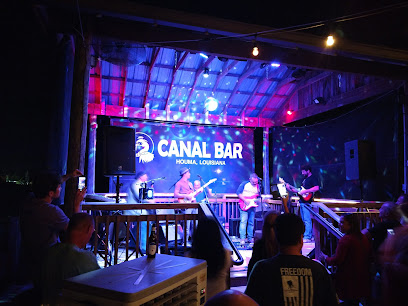
Intracoastal Club
Discover the lively atmosphere and diverse drink selections at Intracoastal Club, a top bar in Houma, Louisiana, perfect for an unforgettable night out.
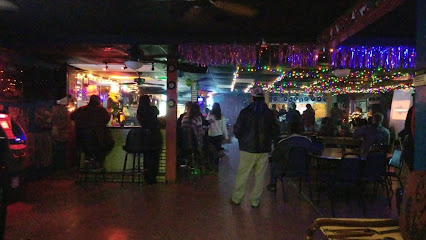
Mahony's
Discover Mahony's, a vibrant Irish pub in Houma, LA, where you can enjoy live music, hearty food, and a welcoming atmosphere that feels like home.
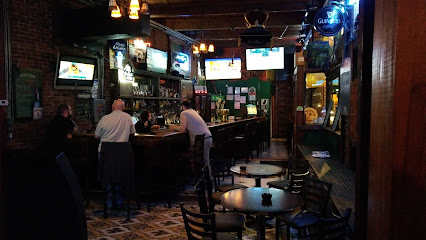
Big Daddy Pub & Grub
Discover the lively charm of Big Daddy Pub & Grub in Houma, Louisiana - a perfect blend of delicious food, refreshing drinks, and vibrant entertainment.
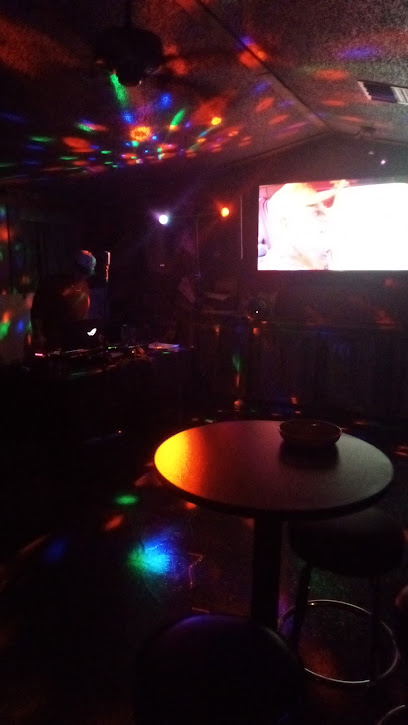
Double Hill Bar and Grill
Experience the vibrant charm of Houma at Double Hill Bar and Grill, where delicious food and lively atmosphere await.
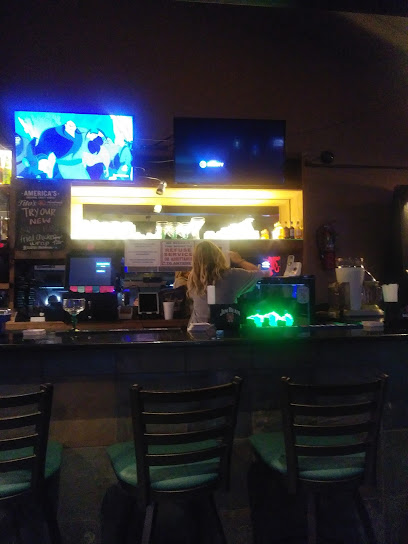
The Boxer & The Barrel
Experience the vibrant nightlife at The Boxer & The Barrel, Houma's favorite cocktail bar with a lively atmosphere and exceptional drinks.
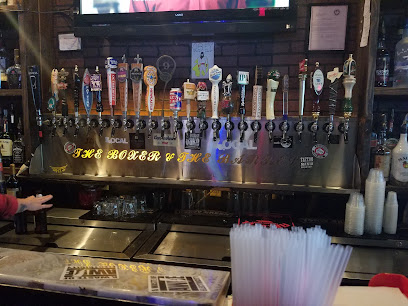
Larussa's Lounge
Experience the vibrant nightlife at Larussa's Lounge in Houma, Louisiana, where exquisite cocktails and live entertainment await.

Ram Rod's Saloon
Discover the vibrant nightlife of Houma at Ram Rod's Saloon, where great drinks and live music create an unforgettable experience.
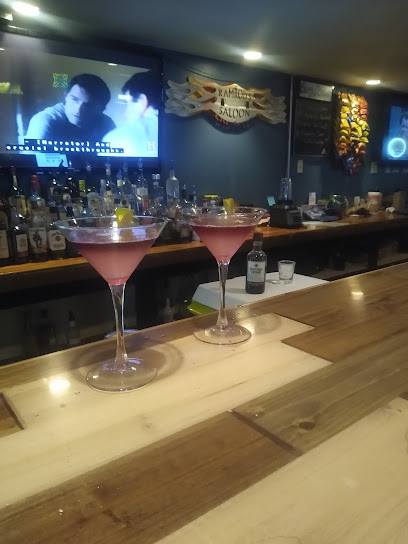
Southdown Bar
Discover Southdown Bar in Houma, Louisiana—a vibrant grill serving mouthwatering dishes in a lively atmosphere, perfect for a night out or casual dining.
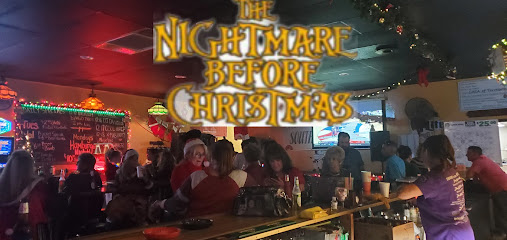
Bottoms Up
Experience the lively atmosphere and delightful drinks at Bottoms Up, the premier bar in Houma, Louisiana, perfect for tourists and locals alike.
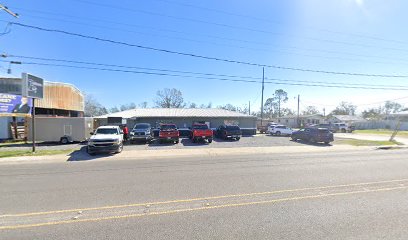
Frog's Bar
Frog's Bar: A lively cocktail bar in Houma, Louisiana, offering creative cocktails and a vibrant atmosphere for a memorable night out.
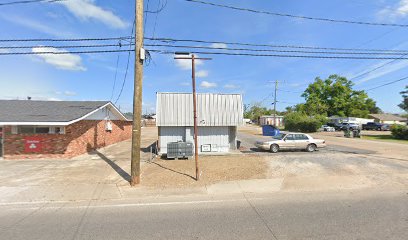
Las Amigas Latinas - Disco Bar
Experience the vibrant nightlife at Las Amigas Latinas, a lively cocktail bar in Houma, Louisiana, known for its festive atmosphere and delicious drinks.

Pours Tavern
Experience the local charm and vibrant nightlife at Pours Tavern, a must-visit bar in Houma, Louisiana, known for its friendly atmosphere and drink selection.
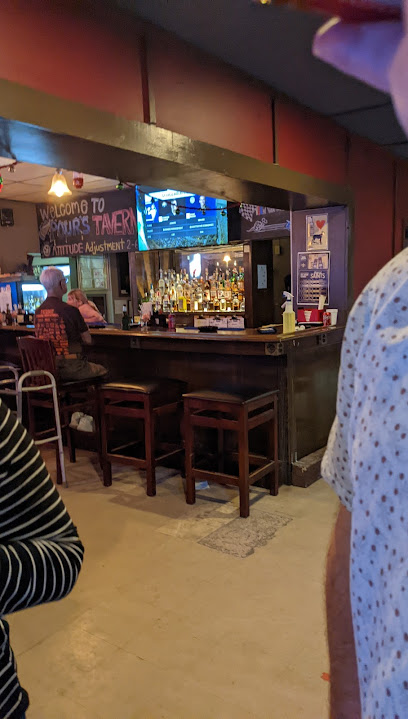
Local Phrases
-
- HelloHééé
[hey] - GoodbyeAurevoir
[oh-re-vwah] - YesOui
[wee] - NoNon
[naw] - Please/You're welcomeS'il vous plaît
[seel voo pleh] - Thank youMerci
[mehr-see] - Excuse me/SorryExcusez-moi
[ehk-skew-zay mwah] - How are you?Comment ça va?
[koh-mohn sah vah] - Fine. And you?Bien. Et vous?
[byen. ay voo] - Do you speak English?Parlez-vous anglais?
[par-lay voo ahn-glay] - I don't understandJe ne comprends pas
[zhuh nuh kohm-prahn pah]
- HelloHééé
-
- I'd like to see the menu, pleaseJe voudrais voir le menu, s'il vous plaît
[zhuh voo-dray vwahr luh meh-nyoo, seel voo pleh] - I don't eat meatJe ne mange pas de viande
[zhuh nuh mahnj pah duh vyand] - Cheers!Santé!
[sahn-tay] - I would like to pay, pleaseJe voudrais payer, s'il vous plaît
[zhuh voo-dray pay-ay, seel voo pleh]
- I'd like to see the menu, pleaseJe voudrais voir le menu, s'il vous plaît
-
- Help!Au secours!
[oh seh-koor] - Go away!Allez-vous en!
[ah-lay vooz ahn] - Call the Police!Appelez la police!
[ah-peh-lay lah poh-leece] - Call a doctor!Appelez un médecin!
[ah-peh-lay uh meh-deh-sahn] - I'm lostJe suis perdu
[zhuh swee pair-doo] - I'm illJe suis malade
[zhuh swee mah-lahd]
- Help!Au secours!
-
- I'd like to buy...Je voudrais acheter...
[zhuh voo-dray ah-shay-tay] - I'm just lookingJe regarde juste
[zhuh ruh-gahrd juhst] - How much is it?Combien ça coûte?
[kohm-byen sah koot] - That's too expensiveC'est trop cher
[say troh sher] - Can you lower the price?Pouvez-vous baisser le prix?
[poo-vay voo bay-say luh pree]
- I'd like to buy...Je voudrais acheter...
-
- What time is it?Quelle heure est-il?
[kell uhr ay-teel] - It's one o'clockIl est une heure
[eel ay oon uhr] - Half past (10)Dix heures et demie
[dees uhr ay dehm-ee] - MorningMatin
[mah-tahn] - AfternoonAprès-midi
[ah-pray-mee-dee] - EveningSoir
[swah] - YesterdayHier
[yair] - TodayAujourd'hui
[oh-zhoor-dwee] - TomorrowDemain
[duh-mahn] - 1Un
[uhn] - 2Deux
[duh] - 3Trois
[twah] - 4Quatre
[kah-truh] - 5Cinq
[sank] - 6Six
[sees] - 7Sept
[sept] - 8Huit
[wheet] - 9Neuf
[nuf] - 10Dix
[dees]
- What time is it?Quelle heure est-il?
-
- Where's a/the...?Où est le/la...?
[oo ay luh/lah] - What's the address?Quelle est l'adresse?
[kell ay lah-drehss] - Can you show me (on the map)?Pouvez-vous me montrer (sur la carte)?
[poo-vay voo muh mohn-tray (soor lah kart)] - When's the next (bus)?Quand est le prochain (bus)?
[kahn ay luh proh-shahn (buhs)] - A ticket (to ....)Un billet (pour ....)
[uhn bee-yay (poor)]
- Where's a/the...?Où est le/la...?
History of Houma
-
Long before European settlers arrived, the area now known as Houma was inhabited by the Houma people, a Native American tribe. The tribe's name means 'red,' a reference to the native red clay along the riverbanks. The Houma people were known for their fishing and hunting skills, thriving in the marshy wetlands of Louisiana.
-
In the early 18th century, French explorers and settlers began to move into the region. The rich natural resources and strategic location along the waterways made it an attractive area for colonization. The French established trade with the Houma people and began to cultivate the land.
-
After France ceded Louisiana to Spain in 1762, Houma fell under Spanish control. Spanish rule brought new architecture, customs, and governance to the area. This period saw the construction of several key infrastructure projects and the introduction of Spanish legal and agricultural practices.
-
In 1803, the United States acquired the Louisiana Territory from France in the Louisiana Purchase. This monumental event brought Houma into the fold of American expansion. The new American governance encouraged settlement and development in the region, leading to increased economic activity.
-
During the 19th century, Houma became an integral part of the plantation economy of the South. The fertile lands were ideal for the cultivation of sugarcane and cotton. This period also saw the rise of large plantations and the tragic reality of slavery, which played a significant role in the region's economic framework.
-
Houma, like much of the South, was deeply affected by the Civil War and the subsequent Reconstruction era. The war disrupted the plantation economy, and the post-war period brought significant social and economic changes. Freed slaves sought new livelihoods, and the economy shifted towards industry and commerce.
-
The discovery of oil and natural gas in the early 20th century transformed Houma into an industrial hub. The region saw an influx of workers and rapid economic growth. This industrial boom led to the development of infrastructure, including roads, schools, and hospitals, fundamentally changing the city's landscape.
-
Throughout its history, Houma has been a cultural melting pot, influenced by Native American, French, Spanish, African, and American traditions. This rich tapestry is evident in the local cuisine, music, and festivals. The city is known for its vibrant Mardi Gras celebrations, traditional Cajun and Creole dishes, and zydeco music.
-
Today, Houma is a thriving community that honors its historical roots while embracing modernity. It is known for its unique blend of cultural heritage, natural beauty, and economic vitality. Visitors can explore historic sites, enjoy local music and food, and experience the warm hospitality that defines Houma.
Houma Essentials
-
Houma is located in Terrebonne Parish, Louisiana. The nearest major airport is Louis Armstrong New Orleans International Airport (MSY), approximately 60 miles northeast of Houma. From the airport, you can rent a car or take a shuttle service to Houma, which typically takes about 1.5 hours by road. Alternatively, you can take a Greyhound bus from New Orleans to Houma.
-
Houma is a small city, and many attractions are easily accessible by car. Local taxi services and ride-share options like Uber and Lyft are available. Houma also has a limited public transit system operated by Good Earth Transit, which offers bus routes connecting key areas within the city. For those wishing to explore the surrounding bayous and wetlands, renting a car is highly recommended.
-
The official currency in the United States is the US Dollar (USD). Credit and debit cards are widely accepted in most hotels, restaurants, and shops in Houma. ATMs are readily available throughout the city. It's advisable to carry some cash for small purchases or when visiting rural areas where card payment options may be limited.
-
Houma is generally a safe city for tourists, but it's wise to take standard safety precautions. Avoid walking alone at night in unfamiliar areas, particularly in neighborhoods like Mechanicville and the East Side, which have higher crime rates. Keep an eye on your belongings in crowded places and ensure your vehicle is locked and valuables are not visible.
-
In case of emergency, dial 911 for immediate assistance. Houma has several medical facilities, including Terrebonne General Medical Center. For non-urgent health issues, there are numerous pharmacies available. It's recommended to have travel insurance that covers medical emergencies. For local police assistance, visit the Terrebonne Parish Sheriff's Office.
-
Fashion: Do dress comfortably, especially in the hot and humid summer months. Casual attire is generally acceptable. Religion: Do respect local customs, especially when visiting churches or religious events. Public Transport: Do be courteous and give up your seat to elderly passengers. Don't eat or drink on public buses. Greetings: Do greet people with a friendly 'Hello' or 'Hi.' A handshake is common in formal settings. Eating & Drinking: Do try local Cajun and Creole cuisine. Don't be afraid to ask locals for restaurant recommendations.
-
To experience Houma like a local, visit the downtown area where you can find local shops and restaurants. Participate in local festivals such as the Houma Mardi Gras or the Voice of the Wetlands Festival. Don't miss exploring the bayous and wetlands; consider taking a guided swamp tour. Engage with locals at the weekly farmers' market for fresh produce and handmade goods.
Trending Landmark in Houma
Nearby Cities to Houma
-
Things To Do in New Orleans
-
Things To Do in Baton Rouge
-
Things To Do in Slidell
-
Things To Do in Lafayette
-
Things To Do in Gulfport
-
Things To Do in McComb
-
Things To Do in Biloxi
-
Things To Do in Natchez
-
Things To Do in Hattiesburg
-
Things To Do in Lake Charles
-
Things To Do in Petaluma
-
Things To Do in Mobile
-
Things To Do in Fairhope
-
Things To Do in Daphne
-
Things To Do in Gulf Shores











